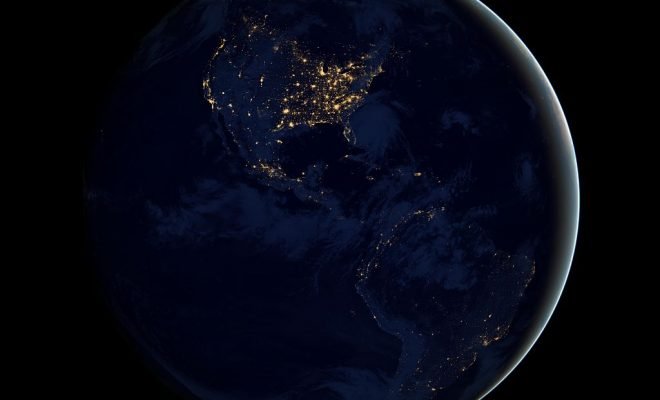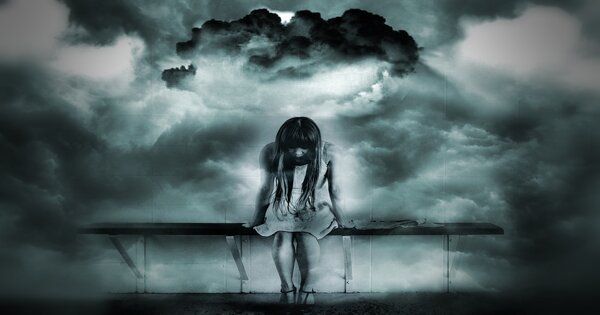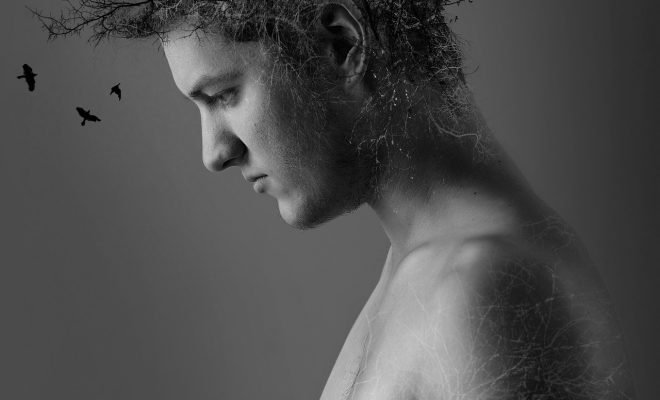An Imagined World Part 1: The Human Condition

This is but an imagined future.
None of the following events or characters exist.
But our planet does.
Ninety-two point ninety-six million miles from the sun there was a little, blue planet that is no longer blue. It is brown with the polluted ambitions of humanity. The oceans bear little life and the land is littered with broken cities and soil that grows nothing. In response to their greed humanity has driven itself into the ground. They live like rats and feed off the last of Earth’s resources. Things don’t look too good for a species that managed to survive more than two hundred thousand years. Slow and painful, the end is coming.
This is where we begin—the coming end.
***
“I know this isn’t the best of circumstances, but I’m so glad we’re doing this, Res.”
“I am too…uh…” Res blushed and looked away from her best friend. “You forgot to tell me what I should call you now.”
Res’s best friend smiled. “It’s Aleshia. Aleshia Brevard Wrightson,” she said with a shrug. “I know it’s so one hundred centuries ago.”
“You picked it because of the centuries past actress, right?” Res asked as the auto pulled into a large garage filled to capacity with about a dozen other autos.
“I did!” Aleshia beamed. “I watched some of her filmography on a holo screen in the recovery room. Amazing. It’s too bad she lived during a time when society was much more strict about what roles its occupants were in.”
Aleshia and Res stepped from the auto. Res went to the front of it, where a small cord was already dispensing from the auto’s bumper. Res took the cord and plugged it into the wall.
As the geothermal panels on the auto began to charge, Aleshia and Res took their bags to the glasstic elevator.
“I’m sorry we didn’t talk much when I was in recovery,” Aleshia began as the elevator went up, “I was so-”
“You’re always apologizing!” Res exclaimed. “It’s fine. My section was on a strict energy cycle anyways. Lights went out at least three times a day for six hours. Sometimes more. One week the energy cycle would turn on just to be turned off again.”
“Is that why you moved in the Hubs?”
Res nodded. “Energy cycles have started to get stricter. More and more cities are declaring emergency only mandates. My family was lucky our application to the Hub came through. So many were denied so we could have a home.”
“Oh Res…..” Aleshia looked to Res and noticed how her eyes seemed to squint against the lights of the elevator. It made Aleshia stop short. Res didn’t look well. Her skin looked pale—paler than it should. Her hair looked like it hadn’t been washed in a week, her clothes seemed a little too wrinkled. “How long were you in the dark, Res?”
The elevator stopped six floors from the top. As the glasstic doors opened, Res lifted the single book bag she had with her and stepped out. She reached into her jacket pocket and pulled out a pair of sunglasses. “Our Territory is this way.”
Aleshia stopped by one of the windows in the massive underground apartment complex. Hubs were humanity’s answer to their destruction of the Earth’s atmosphere. They were giant buildings made with a combination of plastic and glass with even bigger oxygen filtration systems. There were so-called “green spaces,” and had all the tech the twenty-third century could provide. “When I went into recovery, I heard news of a city shutting down. Res, were you—was that where you were?” The window Aleshia stopped at was looking over one of the football-sized green spaces.
“In the months after the emergency mandates, my family struggled. No energy cycle meant we had to pay for the things we needed to survive. Heat. Water. Lanterns. Eventually, there were riots. Violence. My Territory had been the hardest by so-called Cycle Gangs. Chicago shut down the day after we moved here, about a week ago.”
Aleshia leaned against the window. Her tan skin (a rarity these days) and faced lined with anxiety reflected in the low light. “I shouldn’t have left.”
“You had to. It was for your own good.” Res placed her hand in Aleshia’s. “You needed that surgery. You needed to see yourself as the person you’ve always been. You never said so, not until that day, but I could tell you were hurting.”
“I could have waited. I could have delayed it. Res, you never should have faced Chicago alone.” Aleshia turned to Res and pulled her into a hug. “Res, you mean the world to me.”
“You too. And I wasn’t alone. I had my family. It was me, my brother, and my mom.” Res squeezed Aleshia and let go. She stepped back, a haunted, pained looked on her face. “We managed.”
Aleshia said nothing about Res not mentioning her father. Suddenly, Res smiled, brightening up as the elevator dinged. Aleshia could tell the change was forced, nothing but a shield to keep back the dark. “Speaking of family! You haven’t seen mine in months! We haven’t had a decent celebration in months! And you getting out of recovery is worth celebrating.”
Res grabbed her bag, Aleshia’s hand, and began to run down the hallway. Aleshia followed, a horrible feeling settling in her stomach.









